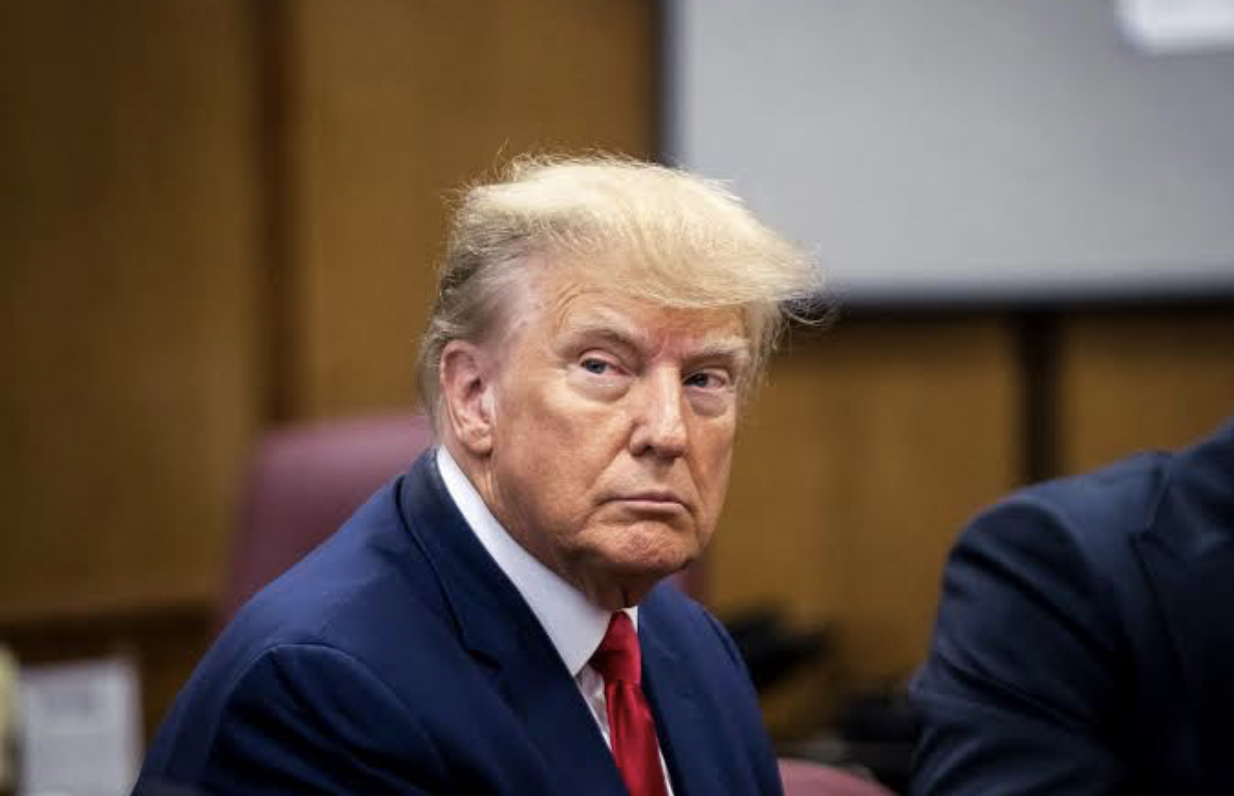Lawyers representing former President Donald Trump are seeking the intervention of Georgia’s highest court to prevent the district attorney who has been examining his actions after the 2020 election from prosecuting him and to discard a special grand jury report related to the investigation.
Fani Willis, the district attorney of Fulton County, has been conducting an investigation since early 2021 to determine whether Trump and his associates violated any laws while attempting to overturn his narrow electoral defeat in Georgia to Democrat Joe Biden. She has hinted at her intention to pursue charges through a grand jury next month.
On Friday, Trump’s legal team in Georgia filed similar requests in both the Georgia Supreme Court and the Fulton County Superior Court, naming Willis and Judge Robert McBurney, who presided over the special grand jury, as respondents. Willis’s spokesperson declined to comment, and McBurney did not immediately respond to an email seeking comment.
Trump’s legal team, consisting of Drew Findling, Jennifer Little, and Marissa Goldberg, acknowledged the unconventional nature of the filings but deemed them necessary given the limited timeframe. Willis has indicated her intent to employ the special grand jury report to seek an indictment “within weeks, if not days.” Two new regular grand juries were convened this week, with one likely to handle the case.
The filings argue, “Even in an exceptionally unprecedented case of national significance, one would anticipate that proceedings would follow their standard procedural course within a reasonable timeframe. However, none of these processes have been ordinary or reasonable. The inevitable conclusion is that the irregularities observed are a consequence of Petitioner being President Donald J. Trump.”
The petitions aim to prevent Willis and her office from continuing to prosecute the case. They also request the dismissal of the report generated by the special grand jury and the prohibition of prosecutors from presenting any evidence obtained from the panel’s investigation to a regular grand jury.
The filings call for the cessation of “all proceedings related to and arising from the investigation by the special purpose grand jury until this matter can be resolved.”
In a previous filing in March, Trump’s lawyers made similar requests, including the plea for a different judge to consider their claims instead of McBurney. Willis dismissed these arguments as lacking merit, and McBurney retained the case without ruling on the Trump team’s requests.
This situation has left Trump’s legal team stating that he is “caught between the prolonged passivity of the Supervising Judge and the impending indictment by the District Attorney,” leaving him no option but to seek relief from the Supreme Court.
Willis initiated her investigation shortly after Trump contacted Georgia Secretary of State Brad Raffensperger in January 2021, suggesting that the state official could assist him in “finding” the votes necessary to overturn his election loss in Georgia. Last year, Willis requested the formation of a special grand jury, emphasizing the panel’s subpoena power as a means to compel witness testimony that might otherwise be uncooperative.
The special grand jury, lacking the authority to issue indictments, convened in May and disbanded in January after hearing from 75 witnesses and submitting a report containing recommendations for Willis. Although most of the report remains undisclosed in accordance with a judge’s order, the foreperson of the panel indicated that multiple individuals were recommended for charges without disclosing their identities.
Trump’s lawyers argued in their March filing that the proceedings of the special grand jury involved consistent ambiguity regarding the law, inconsistent application of fundamental constitutional protections for individuals involved, and the continuation of the investigation by a prosecutor’s office with an actual conflict.
Willis responded in May, contending that these arguments failed to meet the exacting standards for disqualifying a prosecutor, and they did not establish violations of due process rights or the tainted nature of the grand jury process or the governing law.
In the recent filings on Friday, Trump’s attorneys assert that Willis and McBurney have trampled upon the procedural safeguards protecting the rights of Trump and others potentially targeted by the investigation.
They conclude, “The entire process has now been irreparably compromised. Consequently, any subsequent actions cannot be legally sound or command public respect.”
